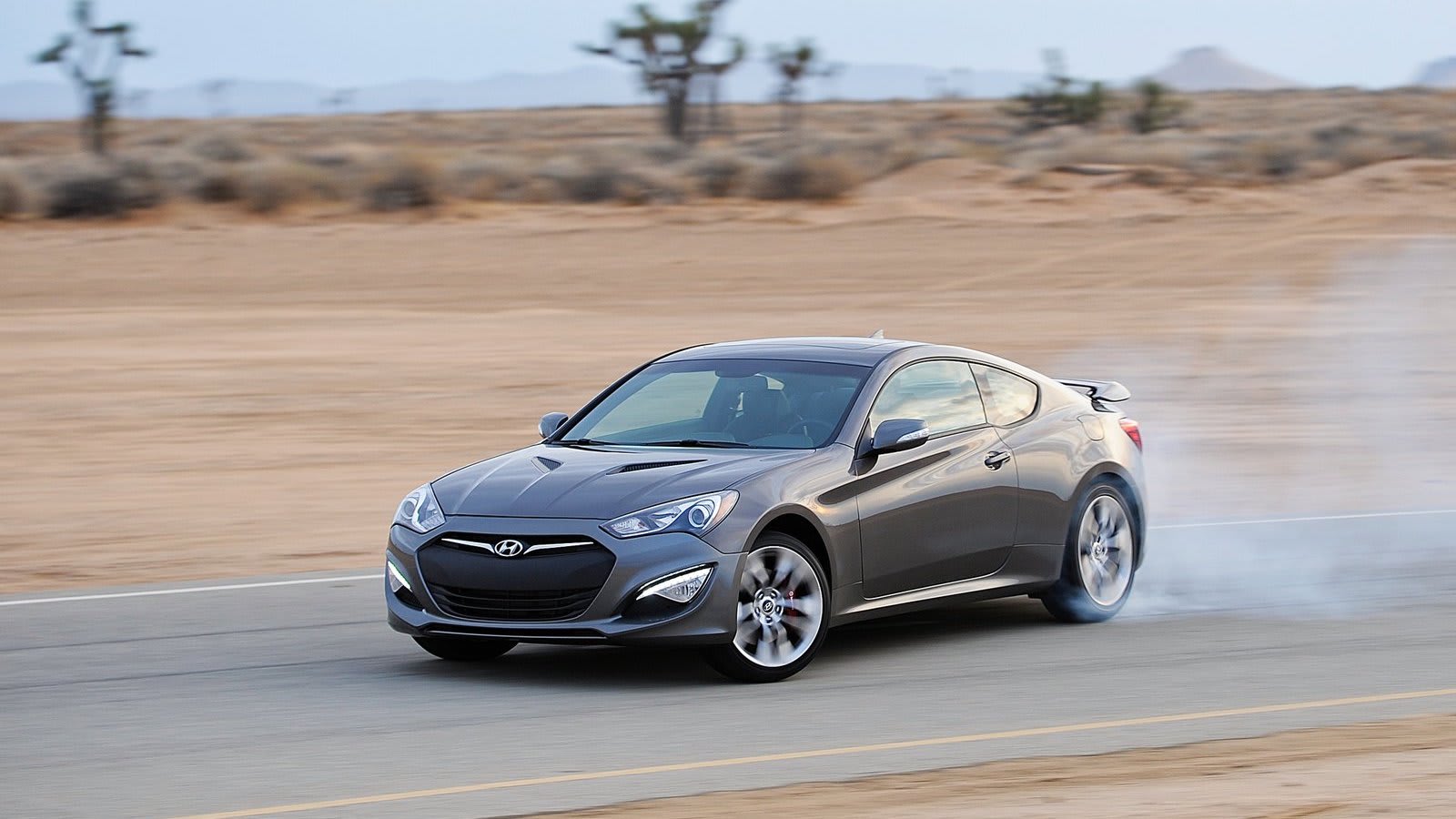Before Genesis was a brand, it was a nameplate. There was the sedan, which first launched for the 2009 model year and leaned far into luxury territory. During the genesis of the Genesis luxury marque, that car carried over as the G80. For model year 2010, a rear-wheel-drive sports coupe arrived on the scene called, very unoriginally, the Genesis Coupe. It came with a choice of two powertrains — a 2.0-liter turbo-four and a 3.8-liter V6 — and received an update for the 2013 model year that saw performance improve.
The car was a relative hit with enthusiasts, but remained niche enough to be often overlooked and, later, even forgotten by many. I personally have fond memories of flogging the Genny Coupe in various forms on the freeways and country roads of Michigan and Ohio. Rarely do I ever see them anymore, but I had two spottings on a recent road trip (I also saw a Suzuki Kizashi!) that inspired me to spill some fresh digital ink over an old favorite.
Why the Genesis Coupe?
It’s a blast to drive. It’s quick, relatively nimble and connected, providing an engaging driving experience. There’s plenty of aftermarket support for it, should you want to take modifications into your own hands. Even if you don’t plan to make big changes, it’s a good-handling car. As we wrote for Autoblog’s first drive back in 2009:
“Hyundai engineers have done an excellent job with the chassis and suspension. It feels well balanced (55:45 weight distribution, regardless of engine), and the vehicle can be tossed into the corner and its attitude modulated with the throttle. Even with traction and stability control completely off (all but our first lap), the coupe is predictable and easy to control at the limit. We’d overcook the entry to a turn countless times as we tried different lines, but a blip of the throttle with a slight change in the steering angle seemed to bring the unflappable coupe back on the race line without drama.”
And that was at the very beginning of the car’s lifecycle. It only got better after that.
Which Genesis Coupe to choose
I especially like the 2013 and later models of the Genesis Coupe, as a fairly heavy mid-cycle refresh saw a boost in performance in both the four- and six-cylinder versions. It also refined the feel of the manual transmission (and introduced an eight-speed autobox if that’s your thing), and introduced nicer materials to the cabin.
Next, you’ve got to choose your engine: the 2.0T or the 3.8-liter V6. I always preferred driving the 3.8 — it just feels like a car that deserves the extra horsepower — but you do deal with a bit more noseheaviness and resulting understeer. The V6 also sounds much better than the somewhat droning inline-four. If you’re going to tune the powertrain, the turbo-four might make a better canvas. You probably already know which powerplant you want anyway, don’t you?
There are also multiple trims to choose from. The R-Spec versions add things like Brembo brakes, a sport-tuned suspension and Torsen limited-slip differential, but delete other creature comforts like cruise control, auto headlights and steering wheel audio controls, among other things, to save weight. If you’re going to make chassis modifications anyway, you may not care to start with the R-Spec or Track versions.
Availability and listings
While not as prolific as some of the competition, there are a healthy number of listings for the Genesis Coupe. We see 2.0T prices ranging from $5,500 for a high-mileage example, on up to $24,000, with the vast majority well below the $20,000 threshold. The Genesis Coupe 3.8 starts at about $6,700 with well over 100,000 miles, and goes up to about $26,000 for low-milage examples. I see a handful of 3.8 R-Specs asking less than $20,000 with under 50,000 miles on the clock.
Of course, when browsing listings, you’ll want to narrow the offerings down by a radius around your ZIP code, and pay attention to the deal rating on each listing to see how a vehicle compares with others in a similar area.




